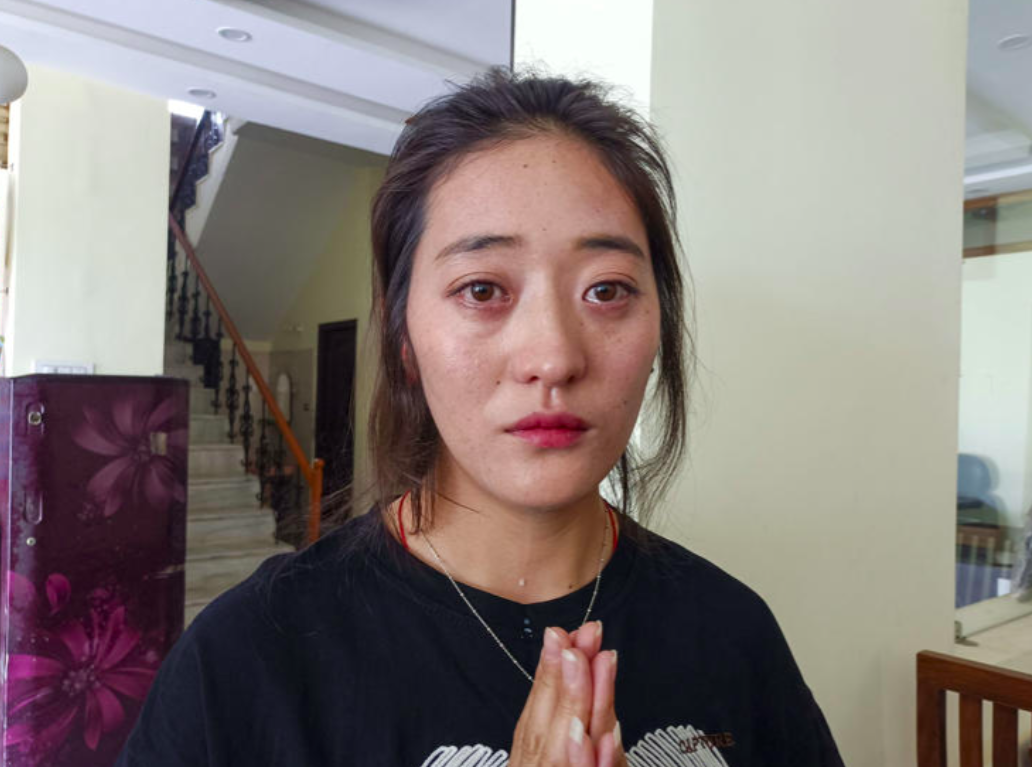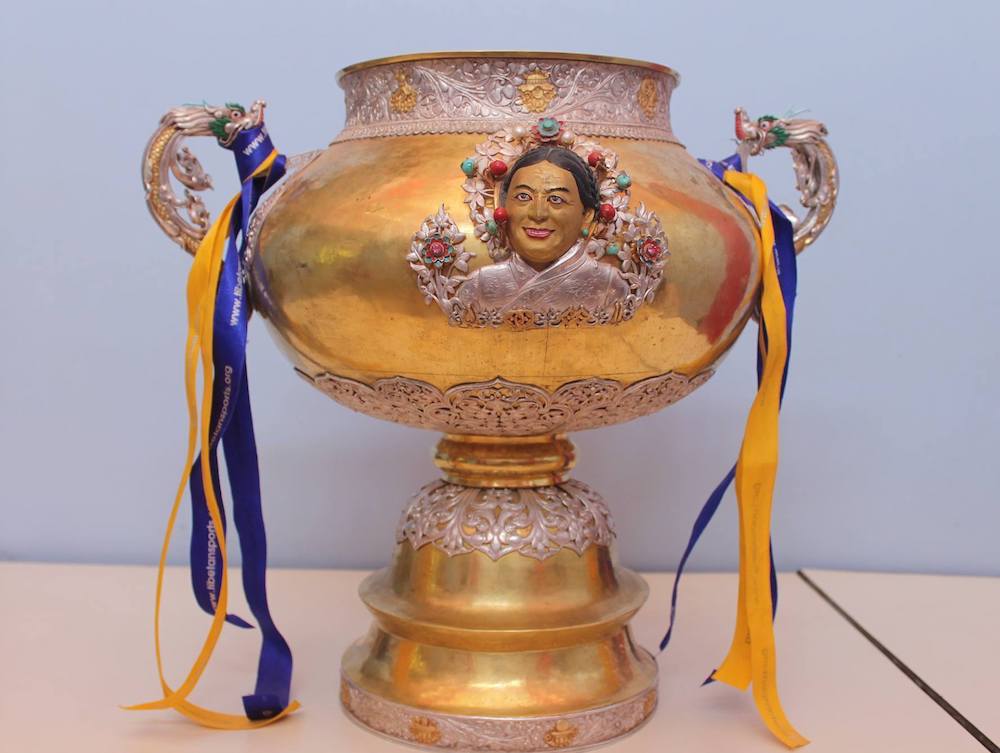By Tsering Dhundup
DHARAMSHALA, May 10: A recently escaped Tibetan political prisoner said that collective punishment is a major tool in China’s arsenal to persecution of Tibetans in Tibet. Namkyi recounted the hardships her family endured due to Chinese authorities’ actions after she and her cousin protested against the Chinese regime in Tibet.
Namkyi, the 24-year-old former political prisoner, told research group Tibetan Centre for Human Rights and Democracy her decision to escape Tibet with her childhood friend and cousin sister, Tsering Kyi, last summer. Despite punitive measures imposed by Chinese authorities, it was the suffering of their loved ones that weighed heavily on their consciences. Namkyi described a prevailing culture of fear and oppression, stating, “No matter how much I’m punished by the Chinese authorities, what hurts the most is seeing my family and villagers suffer because of me. They urge me not to speak out against the authorities because it only brings more harm than good to everyone. They discourage each other from standing up. Witnessing the weight of tightened restrictions on everyone around me was the hardest part.”
On 21 October 2015, Namkyi and her sister, Tenzin Dolma, both 15 years old, participated in a peaceful protest on ‘Martyrs Road’ in Ngaba (Ch: Aba) County, Tibetan Autonomous Prefecture, Sichuan Province. They carried large portraits of His Holiness the Dalai Lama, advocating for “Freedom in Tibet” and the “Return of His Holiness the Dalai Lama and Kirti Rinpoche to Tibet”. Shortly after, a group of Chinese Armed Police officers arrived and took them to a detention centre. There, they underwent intense interrogations, endured harsh conditions, and attended weekly “political re-education” sessions, which included watching government TV and lectures on various topics.
On 23 November 2016, the Trochu County People’s Court sentenced Namkyi and Tenzin Dolma to three years in prison for ‘inciting separatism’. Despite being minor aged just 16, the court falsely claimed they were 18. They were sent to Sichuan Province Women’s Prison, where they underwent military-style training, studied Chinese documents, and performed hard labour for over 12 hours a day. Their food was of low quality, exacerbating their physical condition. After completing their sentences on 21 October 2018, they remained detained for a week until their family submitted a pledge letter.
Like numerous other Tibetan political prisoners in Tibet, their identity cards and their family’s household registration cards (Ch: Hukou) were blacklisted. This resulted from Namkyi, Tenzin Dolma, and their brother, Gendun Phuntsok, engaging in political activism. Consequently, they were barred from government welfare schemes, from which they had previously obtained a small amount of rice and wheat yearly. Their nieces and nephews encountered administrative barriers when trying to enrol in universities.
In 2015, Gendun Phuntsok, Nyamki’s elder brother, and Lobsang Kelsang, two monks from Kirti monastery, were sentenced after participating in a peaceful protest in Ngaba County. The County People’s Court in Tashi Ling (Ch: Li) County, Ngaba, sentenced Gendun Phuntsok to four years in prison and Lobsang Kelsang to three and a half years. Despite being 17 years old at the time, Gendun Phuntsok’s age was falsely increased to 18 by Chinese authorities. Gendun Phuntsok was released from prison in 2019 after serving a four-year sentence; the news of his release only came to light following Namkyi’s escape from Tibet. Upon release, he was emaciated and required extensive medical attention for injuries sustained during his imprisonment. Initially treated in Ngaba County, he was later transferred to Chengdu’s Municipal People’s Hospital, where it was discovered that he had suffered broken ribs and untreated tuberculosis in prison. His family members incurred medical expenses exceeding 10,000 yuan, costs which were not covered by the Chinese government. To this day, he continues to endure chronic pain from the rib injuries inflicted during his time in Chinese custody.
Similarly, Lobsang Kelsang, who was sentenced at a similar time, was released in poor health conditions. Despite completing his prison term he faced an additional six months imprisonment for allegedly reacting negatively to prison guards, which led to a prolonged period spent in harsh conditions in solitary confinement. Upon release, his health was severely compromised, and he was on the brink of death.
Collective punishment, characterized as a state’s sanction against an individual for an act committed by an associated person, is considered arbitrary and potentially in violation of international law. Highlighting the Universal Declaration of Human Rights, Article 9, which stipulates protections against arbitrary arrest, detention, or exile, the report underscores the potential conflict between these practices and established human rights norms.
A report titled “FAMILIES IN FEAR: Collective Punishment in 21st Century China,” released last year by Safeguard Defenders, presented documented cases of Chinese citizens alleging the CCP’s utilization of collective punishment to extract confessions, intimidate family members of activists, and silence critics abroad.










